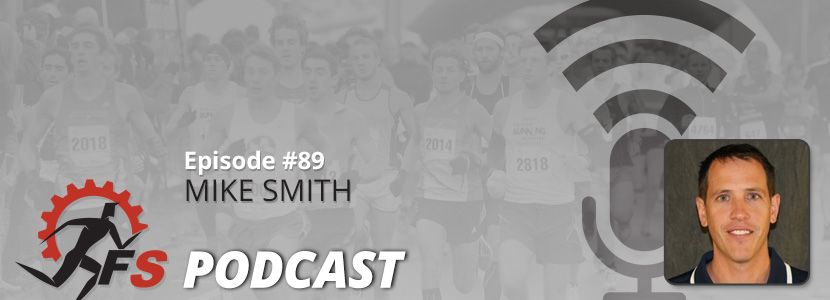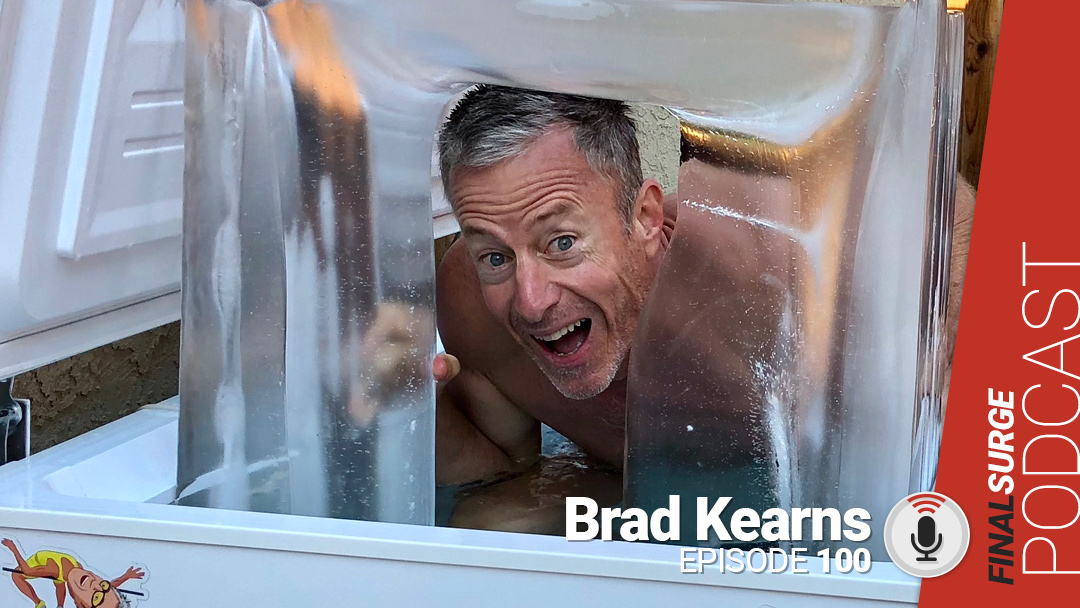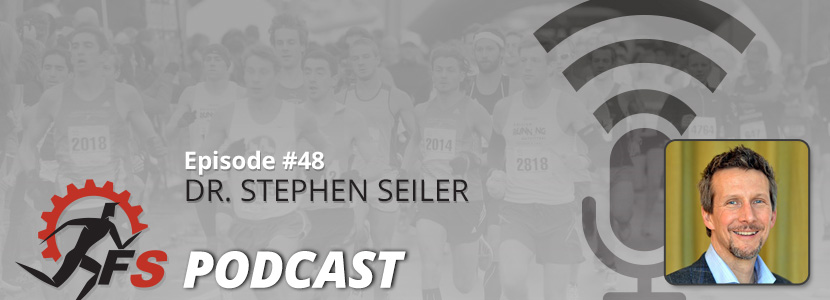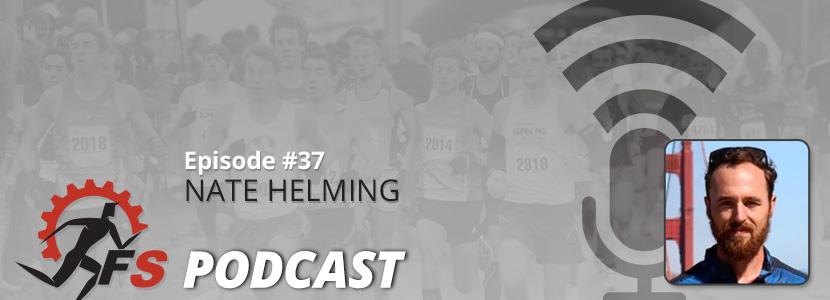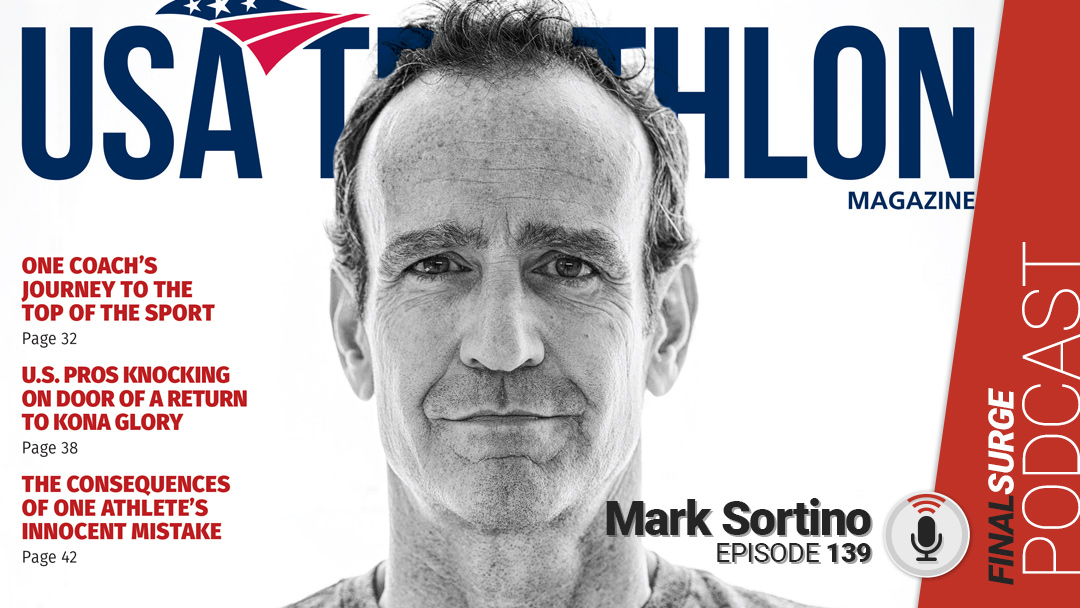In Episode 89 of the Final Surge Podcast we talk to Northern Arizona University Head Coach Mike Smith. NAU’s men’s team has won the past two NCAA Cross Country Championships. We talk to Mike about his training philosophy, about working with Dr. Jack Daniels, recruiting high school runners, and much more.
Welcome to Episode 89 of the Final Surge Podcast where today we welcome 2-time defending NCAA Cross Country Champion Coach Mike Smith to the show. Mike has a unique background working for years alongside Jack Daniels before going into college coaching. We talk to Mike about his coaching philosophies. Please remember to subscribe to the podcast so you don’t miss future episodes and share it on Twitter or Facebook.
Listen to the podcast on iTunes or listen to it on Stitcher or Google Play if you have an Android device.
Stream it right here:
How did you start running?
- Played a lot of sports when youth
How did you move from running at Georgetown to coaching?
- After college tried running some longer distances
- Taught school for a few years then moved to Flagstaff to try training for a marathon
- Moved to Flagstaff and lived there for 6-years
Was there any coaching between when you left college and the head coaching job at Georgetown?
- Worked with Dr. Jack Daniels and learned sports science
- Coached some athletes with Daniels and some club coaching
- When Georgetown opened up it seemed like a natural fit
What was it like working with Dr. Daniels
- At first, it was overwhelming, such a wealth of information
- Learned something through his teaching and stories every day
- The inquiry of why
- Asked how and why all the time
- Unofficial Ph.D. course
You had 4 years at Georgetown with great results. When you heard Eric Heins was stepping down at NAU what was your thought process when you were considering changing jobs?
- I am from the east coast but had my time in Flagstaff with Daniels
- New that if NAU job ever opened it would be a hard decision
- Never really thought it would be so soon
- Leaving Alma-Marta was not an easy decision
- Loved Flagstaff and looked forward to moving back
Took NAU first-year assistant then took over for xc champ any pressure?
- The first year worked with Eric that was the first national championship
- A chance to be an observer and work with Eric for a few months was amazing
- Won the championship in ’16
- Pressure doing it again when on own the next year was something I had seen before as I took over Georgetown as a defending national champion
- I learned from the first experience
We focus on the championship race, but 99% of what you do is not at that race it is in practice day-to-day. Can you tell us what you are looking for in practice and what your interactions are like?
- Skilled coaching is done way before the meet itself
- Insecure coaching shows at the meet
- Uncertainty comes out during meets if did our job correctly we are sure we are ready
- Athletes should be able to make own decisions at the moment
- Good coaching preparing them to make decisions
- In practice, we work on those things
What do you think of race plans for your athletes?
- Early on I would draw up race plans that were complicated
- Easy for us to come up with the plan, we don’t run the race
- As soon as something happens to plan, an athlete’s mind goes to the wrong place
- The athlete needs to just be able to react based on what is going on around
- Coaching happens before the race
Not everyone is going for the win as an individual, can you talk about winning the race within the race, what does that mean to you?
- They will be in situations where they won’t have control, they need to understand their place within the race
- We talk about what it looks like to be in 60th and doing your job
- What it looks like to be in 81st when you are trying to get to 71st
- Prepare for the war and not the dream that won’t ever come
- Stay calm during your war
Your culture seems to be of a fun team where the top racers are all competitive, are they as competitive with each other in practice as they are in a big race and is that culture dictated by the athletes you have and will change with the athletes or something you instill in the team?
- In our program, we teach what healthy competition is
- We show up to practice to make each other better
- We push the best out of each other
- We have gratitude for our best competition
Tyler Day is one of your top runners and a very interesting story for me. Tyler went to high school less than a mile from my house and I watched him compete in high school. He had that great personality then too. And while Tyler was a good high school runner, I don’t think anyone ever looked at him and said he would be a national all-American in college. What do you contribute to the huge jump Tyler made at NAU?
- There are no measurements for belief and will in a lab, cannot measure his will and belief
- Moves well within interaction with the ground
- Some people there is no way to see when something is coming
You said on another podcast that you thought one of the issues you see in training is over-prescription of VO2 work. Can you talk about your training philosophy.
- We have too many coaches who stay inside the box
- Outside the box thinking means you are being creative and looking for improvement
- VO2 is an example of insecure coaching, we don’t always need to make things harder
- Use races as part of a workout day if racing frequently
How does your training differ from Georgetown to NAU because of the altitude?
- From an aerobic standpoint there is some benefit
- There are some disadvantages to recovery
Let’s say you were a high school coach living at sea level in a very flat area, and every year the high altitude teams came down to the state meet and over performed, how you would target your planning to offset the advantage the altitude teams have?
- Some of the best runners in the world don’t train at altitude
- Altitude team may have some advantages, but not a magic pill
- You need to know they are beatable
- Altitude is a great teacher in suffering, you need to practice discomfort
How does you periodization work. Are you like a lydiard with pretty strict training periods or are you more of the new school where you touch on everything all year with small variations?
- Look at NCAA, people who are running great in September, but after taper feel terrible
- Is there evidence that tapering really works or do we just think it does
- We need athletes ready to go, but we need to look at it differently and not cut so much
- The nervous system has to be firing, look at sprints and not pulling back too much
- We keep volume and intensity high
What are you looking for in runners who may want to run at NAU?
- Men’s team is obviously strong and asked about men all the time, but women’s team coming on strong
- Women’s program has me motivated and within 2-3 years we will be a force in the NCAA’s
- We have a great culture and recruiting like crazy
- Men want to come and compete for team titles, for women we want people who want to build something
- We want people who are fired up about being a team and every day show up and work
- We want people who want to be part of a team, not just individuals
- People who understand mechanics are a big part of what we do
- We don’t sell, we want people who want to be at NAU
You talk about moving with the ground, I know you run a summer camp for high school runners, is this something that athletes?
- We run a yearly camp once a year
- We show healthy ways to go about running
- Movement piece is crucial
- Drills need correction of drills, do them right or don’t do them
- Teach build the engine and masters of movement
The Final Surge… 5 questions in under 1 minute
- Favorite endurance/running book? – Once a Runner
- Current trainers you are wearing? – Ultra Boost
- Favorite race? – Western States 100
- Favorite meal or recovery drink? – Mike and Rhonda’s Lumberjack Special
- Your favorite workout – Run up a mountain until it stops!

